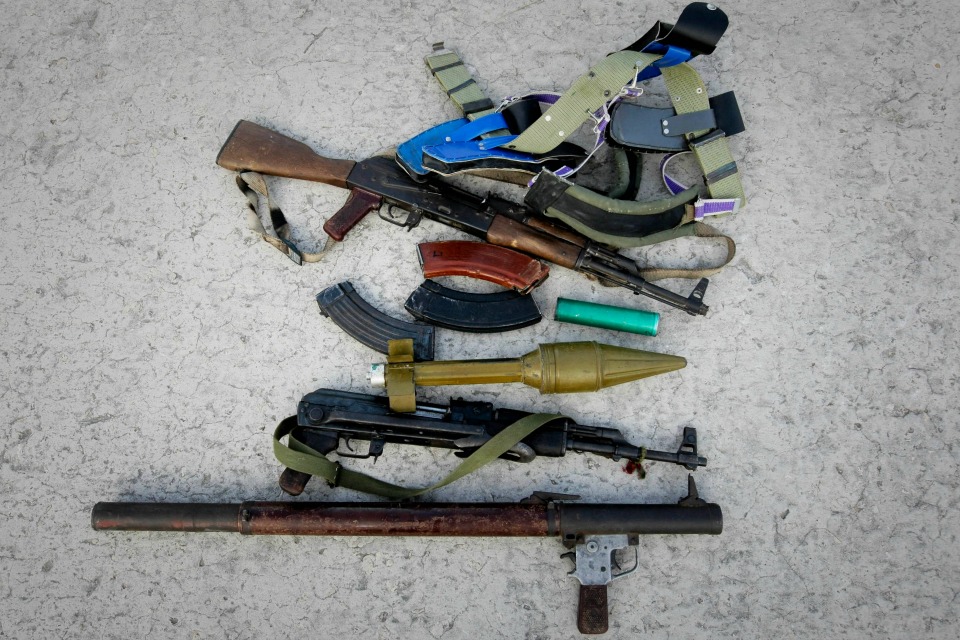"Every year, enough ammunition is manufactured to kill every single person in the world twice over"
Statement by Ambassador Matthew Rycroft of the UK Mission to the UN at the Security Council Debate on Small Arms and Light Weapons.

Thank you Madam President for convening this important open debate on small arms and light weapons and for your leadership on this issue.
I welcome the briefings by the Secretary-General and the High Commissioner for Human Rights, Prince Zeid. I also thank Karamoko Diakite for sharing his personal experiences of the horrific impact that these weapons can have.
Madam President,
By the time I finish delivering this statement today six more people will have been killed as a direct result of small arms and light weapons. The human cost of these weapons is astounding, through their illicit transfer, destabilising influence and misuse.
Every year, enough ammunition is manufactured to kill every single person in the world twice over. Every year eight million new weapons enter into circulation.
When states fail to control the supply and sale of these weapons, they not only jeopardise the safety and security of innocent people across the world, they also fuel instability and threaten international peace and security.
So the need for collective action is clear. In 2013, this Council spoke on this issue for the first time. Today, we return under your Presidency to the issue, to reflect on how far we have come in addressing this scourge, and what more needs to be done.
The United Kingdom welcomes the draft Resolution proposed by the Presidency. It aims to strengthen the international community’s ability to counter the challenges posed by the proliferation of small arms and light weapons and to build on Resolution 2170. It would help improve the UN’s work and support the Arms Trade Treaty.
The UK places a high priority on addressing the threats posed by small arms and light weapons and believes that there are three key areas where we can contribute.
First, we support greater efforts to ensure effective stockpile management, removal and destruction. Proper storage prevents the flow of these weapons into the hands of those who seek to misuse them. It helps curtail an illicit economy where supply feeds demand. And it helps ensure safe storage and removal, preventing incidents like the one in Libya in November 2013, where over 40 people were killed in an arms depot explosion.
Indeed, it is Libya that presents the greatest concern to my Government on the issue of small arms. The vast, unsecured arms and ammunition of the Qadhafi-era are now fuelling the instability and violence facing the country and the region. And it is this instability that allowed human traffickers and criminal gangs to thrive and send thousands of migrants to their deaths in the Mediterranean.
That is why the UK has planned to commit over $30 million to assist Libya with arms and ammunition management. We are providing a senior disarmament advisor to work with the United Nations and the Libyans and we stand ready to increase our efforts to match the scale of the challenge. A political solution remains vital to this effort and we reiterate our support for Special Envoy Leon. We urge all sides to engage in talks to agree a National Unity Government and implement a ceasefire.
Second, the United Kingdom will continue to champion the implementation of the Arms Trade Treaty. As the world’s first legally binding treaty regulating the international trade in conventional arms, it shows how much we can achieve when we work together. So let’s seize the momentum it has created. It is a historic treaty; it has the ability to change the lives of those most affected by the supply of illegal small arms and light weapons.
To do so, we should ensure that the core structure and functions of the Treaty are effective and cost efficient. We look forward to negotiating the rules of procedure for the Treaty, establishing a secretariat and encouraging open and accessible transparency reporting.
As we approach the First Conference of States Parties in August, we will continue to lobby our international partners to support and accede to the Treaty. We want as many countries as possible to join us. We stand ready to offer our expertise, where possible and appropriate, to any state that wants to accede, yet lacks the capacity to do so.
Madam President,
Finally, let us not lose sight of the disproportionate and distressing impact that small arms and light weapons have on women and children. As the Secretary-General made clear in his report, sexual and gender based violence is often perpetrated by individuals and militias armed with these weapons.
In this fifteenth anniversary year of Resolution 1325, we welcome the report’s recommendation to give greater recognition to the impact of these weapons on women and children. But women can also play a key role in resolving these problems. Women can help combat and eradicate the illicit transfer, the destabilising accumulation and the misuse of small arms. They can do so by participating in all programmes, planning and implementation processes, including at grassroots level. In the United Kingdom’s National Action Plan on Resolution 1325, we pledge that women will play a key role to control the use of small arms and light weapons. And we call on other Members to do the same.
Thank you Madam President.